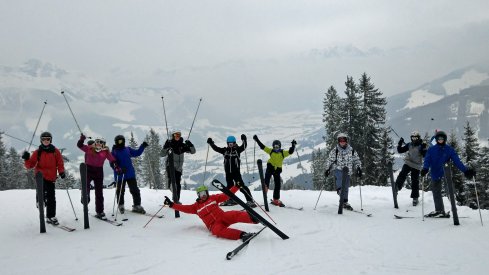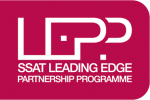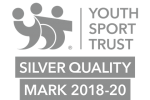Key Stage 3
Design and Technology KS3
Students have two lessons a week and during each year they will work on the following projects:
Year 7
Food
We aim to introduce basic nutrition and cooking skills. We begin with a unit on safety in the kitchen and discuss food hygiene and safety at home and school. Cooking at school is quite different to cooking at home with extra constraints of time and space and no dish washers! We practice routines and working as a team. The first practical lessons use the hobs, ovens and small utensils to ensure that everyone can work independently and safely.
Our second unit focuses on basic nutrition and healthy eating. In particular we look at the use of starchy carbohydrates and high fibre foods. Planning for practical lessons should ensure that tasks are written in the correct order and safety and hygiene are considered. Evaluations should describe the taste, texture and appearance of their cooking. We consider how to adapt and improve our food products after evaluation.
Product Design
In Year 7 students are given the opportunity to experience the use of tools, equipment, processes and graphical techniques to develop ‘mastery’ skills, this gives a solid foundation for their future progress and experiences within the department. This foundation covers a broad spectrum of skills from using basic hand tools, developing graphical drawing techniques; shading and texturing skills through to Computer Aided Design (CAD) and the use of specialised machinery. The culmination of these learning experiences is to produce a range of products that incorporate variety of skills the students can take home and be proud of.
Textiles - Day of the Dead
Students undertake a project to design and make a felt skull. This enables them to learn basic sewing techniques and sewing machine skills. The skull can be designed for a range of items such as a paperweight, beany toy or door hanger. It is a project that will showcase student’s hand stitching skills and basic construction techniques.
Throughout the project, students work on all aspects of the design process. This includes researching, designing, planning, manufacturing and evaluating their skull while at the same time learning and developing practical skills.
Year 8
Food
Planning healthy, nutritionally balanced meals is the topic for the first unit in Year 8. We begin by looking at the risks of food poisoning and how it can be avoided. Pupils design and make meals suitable for teenagers, vegetarians and for low fat diets. Investigative work looks at the nutritional problems that may arise with these diets and how they can be improved but still enjoyed. Practical work encourages the pupils to adapt recipes and increase confidence by learning new skills and using a variety of equipment. Planning for practicals should include ideas for alternative ingredients. Product analysis of food products is an opportunity to consider sensory descriptions of a product, costing, environmental and ethical decisions when designing products.
The second unit looks at the importance of fruit and vegetables in the diet and the five-a-day campaign. Practical work incorporates the use of a variety of fruits and vegetable in both sweet and savoury dishes. Evaluations should include the opinions of others.
Product Design
In Year 8 students are given the opportunity to build upon their ‘mastery’ skills by developing both graphical and manufacturing skills further. This will be accomplished through the use of more advanced CAD software from the ‘Adobe Design suite’, presentation styles and product modelling. As well as, more focussed work with materials, on cutting and bending along with some basic electronics. These projects allow students to show their creativity and ability to design and produce quality products.
Textiles - Soft furnishings
In Year 8 students work on a soft furnishings project. They select a theme that will be the focus of the project and then produce designs for a product that will be suitable for their selected target market. Students carry out a wide range of practical work producing a range of samples of surface decoration techniques before putting them into practice on their chosen product. They will make a paper template to enable them to accurately cut out their product and develop their sewing machine skills through the making of it. This project builds on the skills learnt in Year 7.
Year 9
Food
Pupils will study the industrial aspects of safety and hygiene in food production. The emphasis in practical work is on independence. Pupils will make a range of healthy main meals and desserts using a variety of skills, following recipes and time plans. They are encouraged to adapt recipes to meet healthy eating guidelines and their own likes and dislikes. Evaluations should show that they can make adaptations to improve a recipe. Pupils will use findings from food product analysis to help design their own recipes. A final group task will enable gifted and talented pupils to show their leadership skills.
Product Design
In Year 9 we give students the experience of how GCSE coursework would be approached and the type and quality of work that would be required to take the subject further in Key stage 4. Again, the projects allow for students to be creative, imaginative and innovative through the design and manufacture of sustainable, reclaimed pallet products and the modelling, branding and marketing of an everyday item. During the projects they will look at traditional and modern marketing techniques to create a professional looking product that would meet their target audience, more advanced CAD work with ‘Adobe Design’ and greater practical skills with accuracy and quality of finish.
Textiles
Students build on their stitching, sewing machine and decorative skills to design and make a product. They will make their own paper template, select their fabric and decide on the best techniques to use to achieve their design. The focus of this project is to produce high quality, commercially viable product. Students can select whether to put the focus on decoration, construction or a combination of both.
















